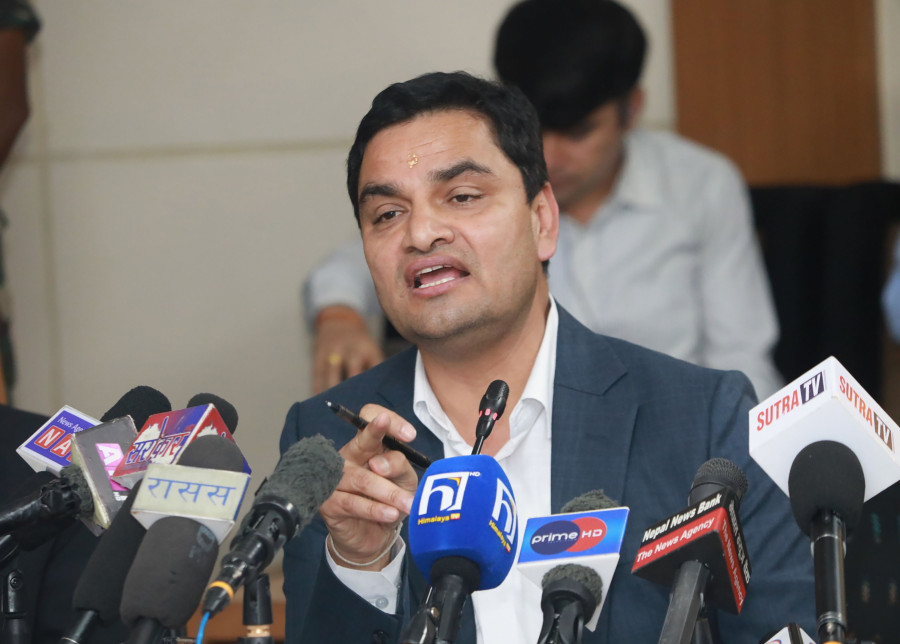Editorial
Year of broken promises
Unrealistic programmes and unmet promises on the health sector deepen public’s mistrust of it.
Since assuming office last year, Minister for Health and Population Pradip Paudel has spent much time making one after another pledge. He vowed to bring a sea change in health by ending the woes of patients at the state-run health facilities and by reducing long waiting lines at public hospitals within a month of his appointment. He also promised to soon jack up the health insurance coverage to Rs500,000. Paudel even issued a circular for the (rather unrealistic) execution of the Cabinet decision to provide outpatient care on public holidays. The health minister went so far as to announce free treatments for impoverished burn patients and cancer patients under fourteen.
A year on, his promises ring hollow as patients continue to face hardships at state-run healthcare facilities. Long queues at these hospitals are still the norm, and doctors have repeatedly disrupted health services. You would be lucky to find free essential medicines, including iron and folic acid and family planning contraceptives like Depo-Provera, at government health facilities. It has been months since many pregnant women, new mothers and girls aged 10 to 19 have done without free iron and folic acid. The government has thus failed to supply the supplements necessary to protect them from anemia. For instance, in Jajarkot district’s health office, Depo-Provera is about to run out, but the supply remains uncertain. Even the province’s supplier, the Province Health Logistics Management Centre, doesn’t have these shots. The paucity of birth control shots could in turn lead to a spike in unintended pregnancies across the country.
Yet the minister is basking in self-praise, detached from ground realities. At a press meeting on Monday, what he presented was less a report on meaningful progress in the health sector over a year and more a self-congratulatory speech about the completion of routine programmes that any health minister is expected to carry out. While he claimed coordination among agencies, infrastructure development, and policy discussions as his achievements, these were hardly groundbreaking. What’s more problematic is Paudel’s vague answers when journalists at the press meet asked him about continued hardships of patients in the state-run hospitals and health facilities.
Paudel’s failure to keep his word again shows that things are easier said than done, especially in a sector as vast and complicated as health. Yet he could at least get the basics right. Experts have repeatedly warned that the minister’s free health schemes are beyond the capacity of the existing budget. For this fiscal year, the government has set aside Rs95.81 billion for health. Even though this is 0.3 percent up from the previous fiscal year, the sector’s liabilities are high, and we still don’t have enough funding for even the most basic health services. Minister Paudel’s first year in office would have been meaningful had he consulted experts and worked on existing challenges by understanding ground realities of the country’s healthcare system. This would also have prevented him from engaging in political point-scoring on matters of life and death for many Nepalis. The country’s healthcare system is at a critical juncture, and unrealistic programmes and unmet promises only deepen public’s mistrust of it. Nepalis have had their fill of populist vows; they now deserve accountability and services that uphold their right to sound health and quality healthcare.




 22.17°C Kathmandu
22.17°C Kathmandu














